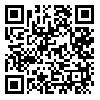Volume 5, Issue 3 (2025)
jpt 2025, 5(3): 1001-1012 |
Back to browse issues page
Download citation:
BibTeX | RIS | EndNote | Medlars | ProCite | Reference Manager | RefWorks
Send citation to:



BibTeX | RIS | EndNote | Medlars | ProCite | Reference Manager | RefWorks
Send citation to:
Karimi S, Tabstabaie M. A New Analysis of Mulla Sadra’s Theory of Corporeal Origination and Spiritual Subsistence Based on Emergentism. jpt 2025; 5 (3) :1001-1012
URL: http://jpt.modares.ac.ir/article-34-81184-en.html
URL: http://jpt.modares.ac.ir/article-34-81184-en.html
1- Department of Philosphy, University of Religions and Denomenations, Qom, Iran , karimiyahosein@gmail.com
2- Department of Moral Philosphy, University of Religions and Denomenations, Qom, Iran
2- Department of Moral Philosphy, University of Religions and Denomenations, Qom, Iran
Abstract: (104 Views)
The theory of Jismāniyyat al-Ḥudūth wa Rūḥāniyyat al-Baqā’ (corporeal origination and spiritual subsistence) in Mulla Sadra’s philosophy is one of the most fundamental perspectives in explaining the nature and evolution of the soul. This theory dynamically explains the relationship between matter and form, holding that the human soul originates as a material phenomenon but ascends to a spiritual, immaterial level in its developmental process. In contrast, emergentism in contemporary philosophy of mind and science argues that new qualitative properties such as mind and consciousness emerge from the complex interaction of material components and possess causal efficacy irreducible to their physical bases. The present article provides a comparative analysis of Mulla Sadra’s theory within the framework of emergentism, identifying key similarities and differences. It further examines the metaphysical and epistemological foundations of both views, assessing their relevance to contemporary debates in philosophy of mind and artificial intelligence. Additionally, the present article offers a distinction between physical and immaterial consciousness based on Sadra’s view.
Keywords: Mulla Sadra, soul, corporeal origination and spiritual subsistence, emergentism, philosophy of mind, consciousness, artificial intelligence.
Article Type: Original Research |
Subject:
Philosophy of Mind (Islamic)
Received: 2025/05/31 | Accepted: 2025/07/3 | Published: 2025/05/31
Received: 2025/05/31 | Accepted: 2025/07/3 | Published: 2025/05/31
Send email to the article author
| Rights and permissions | |
 |
This work is licensed under a Creative Commons Attribution-NonCommercial 4.0 International License. |





